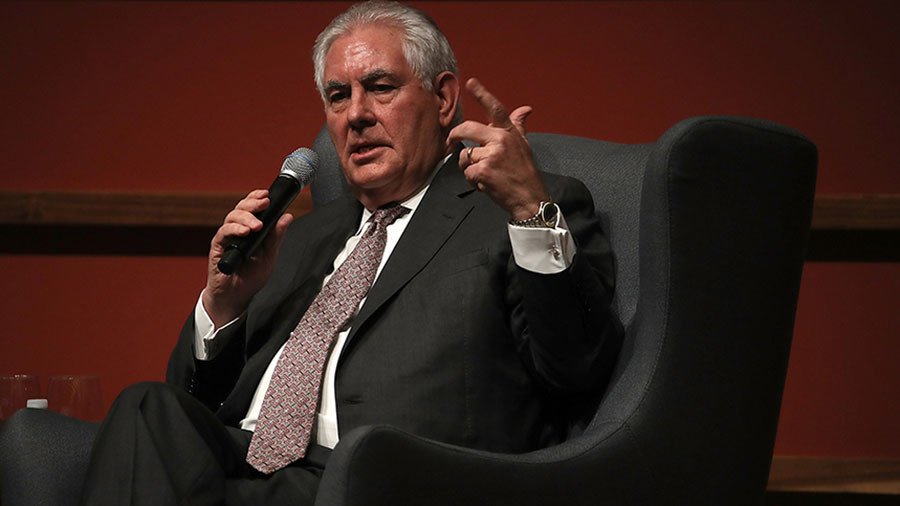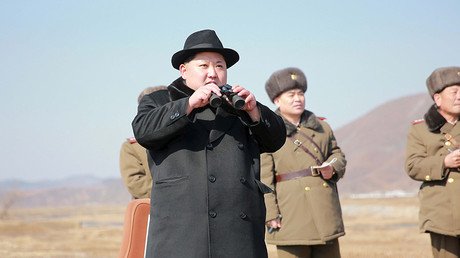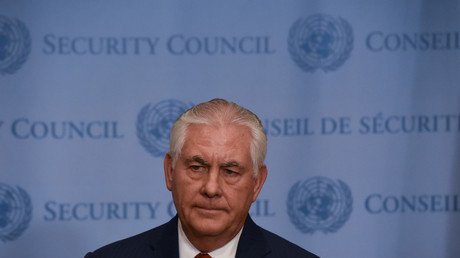Dying North Koreans a sign US diplomatic strategy works, Tillerson says

Signs of starvation and death in North Korea indicate that US diplomatic strategy works fine, says the secretary of state. The objective now is not to let Pyongyang evoke sympathy around the world for its sanctions-induced woes.
The unexpectedly-revealing description of what Rex Tillerson apparently considers successful diplomacy came from his own mouth on Wednesday as he was speaking at Stanford University with former Secretary of State Condoleezza Rice.
“The Japanese… have had over a 100 North Korean fishing boats that have drifted into Japanese waters. Two-thirds of the people on those boats have died,” Tillerson said, citing the Japanese delegation that attended a conference in Vancouver, Canada, earlier this week.
He was referring to the regular phenomenon of so-called ‘ghost ships’ from North Korea, which have become stranded on the Japanese coast for years. Last year, a record 104 such cases were reported by Japanese authorities, with some 30 fishermen found dead on arrival. Any survivors usually ask to be returned to their home country, and Japan obliges.
So why are dozens of dead North Koreans a good sign?
“[The fishermen] are being sent in the wintertime to fish because there are food shortages. And they are being sent out to fish with inadequate fuel to get back. So we are getting a lot of evidence that these [sanctions] are really starting to hurt.”
Tillerson claims that the leadership in Pyongyang will be willing to negotiate in the face of starvation and fuel shortages. The same leadership that, according to some US officials, does not value the lives of ordinary North Koreans and has a record of enjoying lavish lifestyle as the county lost an estimated hundreds of thousands to the famine in the mid-1990s.
What will Pyongyang do now? Tillerson believes that, “The playbook is: OK, we’re going to start our charm offensive to the rest of the world and let them see we are just like normal people like everybody else. We are going to stir some sympathy. We are going to drive a wedge between South Korea and their allies.”
But fear not. The US was assured by South Koreans they won’t allow themselves to think North Koreans are human beings that deserve sympathy.
“An extraordinary amount of time yesterday in the group discussion was hearing from Foreign Minister Kang [Kyung-wha] of South Korea about how they are not going to let that happen,” Tillerson said.
Well, one can give that to the diplomat: he’s not trying to sugarcoat this. Evidently, the Trump administration is fine discussing things in public the same as they do in private.
Like this story? Share it with a friend!















